Covid-19: Brazil 'variant of concern' detected in UK
- Published
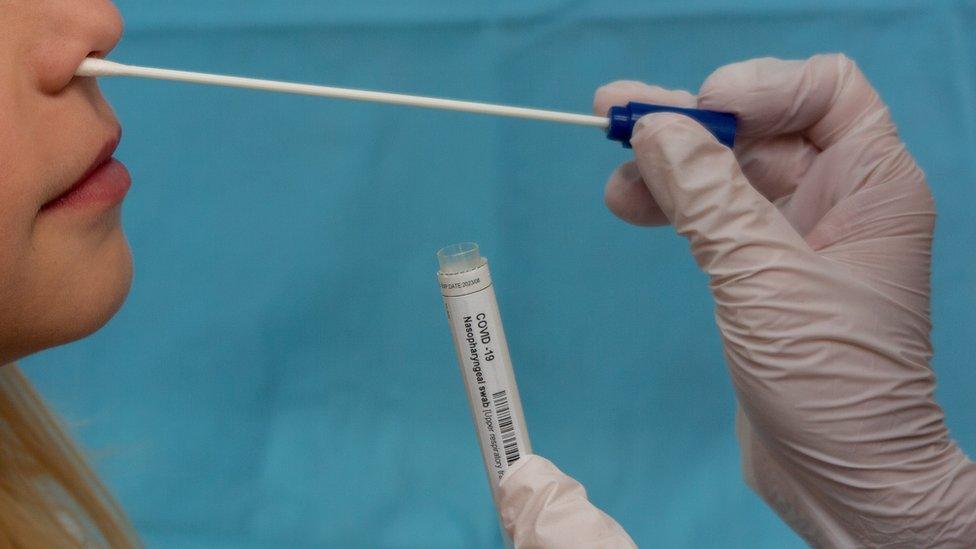
A coronavirus "variant of concern" first detected in Brazil has now been found in the UK.
Three cases have been detected in England and separately three in Scotland.
In England, officials are still trying to track down one of those who tested positive for the new variant.
The three Scottish residents had flown to north-east Scotland from Brazil via Paris and London, the Scottish government said.
Experts believe this variant (P1) - first detected in travellers to Japan from Manaus in northern Brazil in January - could be more contagious.
There are also concerns vaccines may not be as effective against it - but NHS England's Prof Stephen Powis said vaccines could be "rapidly adapted".
Dr Susan Hopkins, from Public Health England (PHE), said the UK was more advanced than many other countries in identifying the variants and mutations and therefore able to act quickly.
In England, the first two cases are from the same household in South Gloucestershire after someone returned from Brazil on 10 February - five days before the government's hotel quarantine rule came into force.
Two other people in the same household have also since tested positive for Covid - but tests are still ongoing to check if it is the same variant, so they are not included in the overall UK total of six.
PHE said officials are now tracking down passengers who were on the same flight from Sao Paulo to Heathrow, via Zurich.
The third case identified in England is not linked to the other two cases and the whereabouts of that person are still not known.
PHE said the person did not complete their test registration card so follow-up details are unavailable.
Officials are asking anyone who took a test on 12 or 13 February and who has not received a result or has an uncompleted test registration card to come forward immediately by calling 119.
Meanwhile, testing is being ramped up in South Gloucestershire - on the outskirts of Bristol - with people living in five postcode areas invited to get tested even if they do not have symptoms. The postcodes fall within Bradley Stoke, Patchway and Little Stoke.
Regarding the cases in Scotland, the government said the three people had tested positive while self-isolating.
Other passengers who were on the same flight from London to Aberdeen are now being contacted.


The Brazil variant is something officials are worried about because it shares similar mutations to the South Africa variant of concern.
Both have undergone genetic changes that could make them more contagious and perhaps less easy to stop with our current vaccines.
The coronavirus jabs being given to people now were designed around earlier versions of the pandemic virus, not these new variants.
Scientists believe they should still protect, although perhaps not quite as well.
Work is already under way to redesign or tweak the vaccines to make them a better match for some of these new "variants of concern".
These updated vaccines could be ready within months, meaning the UK would have millions of doses ready to give people a booster shot before next winter to make sure the population is protected.
There will be more cases out there of new variants that have not yet been identified.
While it may not be possible to eliminate them, the determination is there to slow the spread of coronavirus, including new variants. Sticking to the social distancing rules will help.

Both PHE and the Scottish government said the variant had been designated "of concern" as it shares some important mutations with the variant first identified in South Africa (known as B.1.351).
One of these mutations - called E484K - may help the virus evade parts of the immune system called antibodies. It is also possible that this variant may respond less well to current vaccines, but more work is needed to understand this.
In January, a coronavirus variant from Brazil was found in the UK - but it was not this variant of concern.
PHE said the "risk to the wider community is considered low" but as a precaution extra community testing is be rolled out in some postcodes north of Bristol.
It urged people to keep following the coronavirus measures.
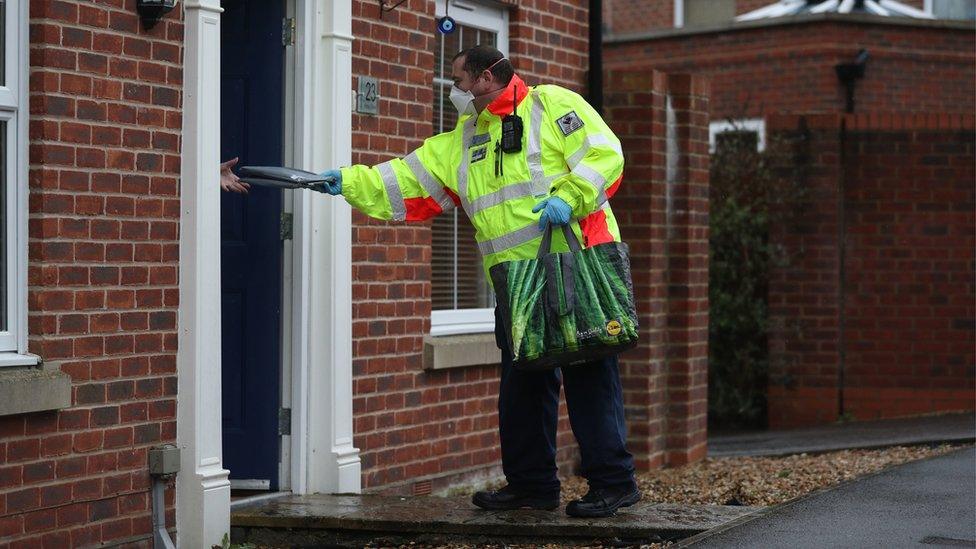
Extra testing in the community has already been carried out for other variants elsewhere in the country
Meanwhile, Labour's shadow home secretary, Nick Thomas-Symonds, said the news of the variant was "deeply concerning".
"It is now vital that we do everything we can to contain it," he said.
"But this is further proof that the delay in introducing a hotel quarantine was reckless and the continuing refusal to put in place a comprehensive system leaves us exposed to mutations coming from overseas."
The hotel quarantine rule came into force on 15 February. It means that travellers coming to England from 33 countries - including Brazil - must pay to quarantine in a hotel for 10 days, while in Scotland the rule applies to travellers from all countries.
Before that date, travellers arriving in the UK still needed to self-isolate in their homes for 10 days.
All travellers to the UK also need to present a negative Covid test taken a maximum of 72 hours before their departure.
Home Affairs Committee chairwoman Yvette Cooper said on Twitter, external it was "notable" that the pre-flight tests first brought in by the government in January did not catch six cases.
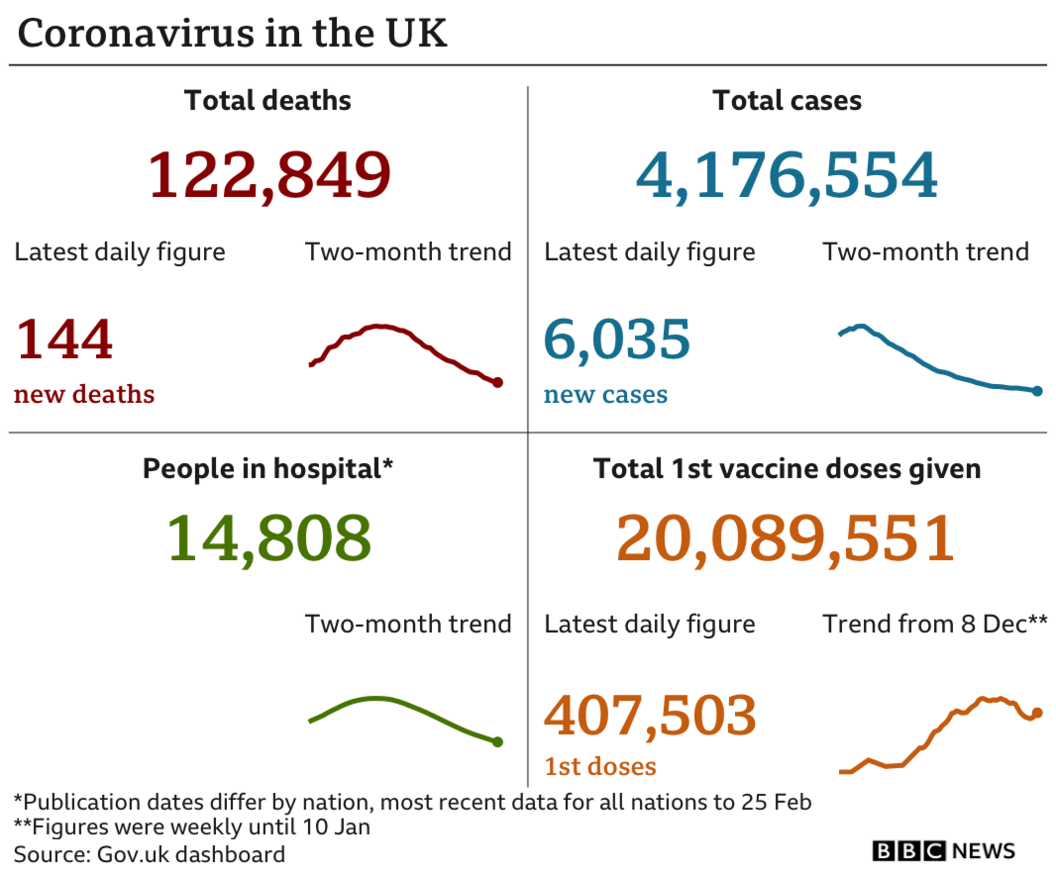
It comes as the UK announced another 6,035 cases of coronavirus and reported that a further 144 people had died within 28 days of a positive test.
But a milestone in the vaccination programme was reached, with more than 20 million people having received their first dose of the vaccine.

LOOK-UP TOOL: How many cases in your area?
LOCKDOWN RULES: What are they and when will they end?
YOUR QUESTIONS: We answer your queries
GLOBAL SPREAD: How many worldwide cases are there?
TREATMENTS: What progress are we making to help people?

Related topics
- Published1 July 2022
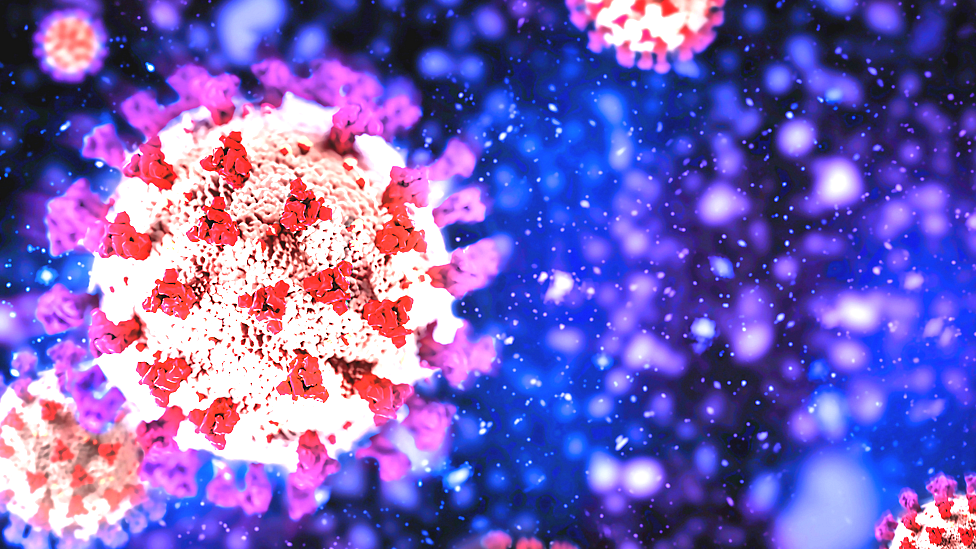
- Published5 July 2023

- Published4 March 2022
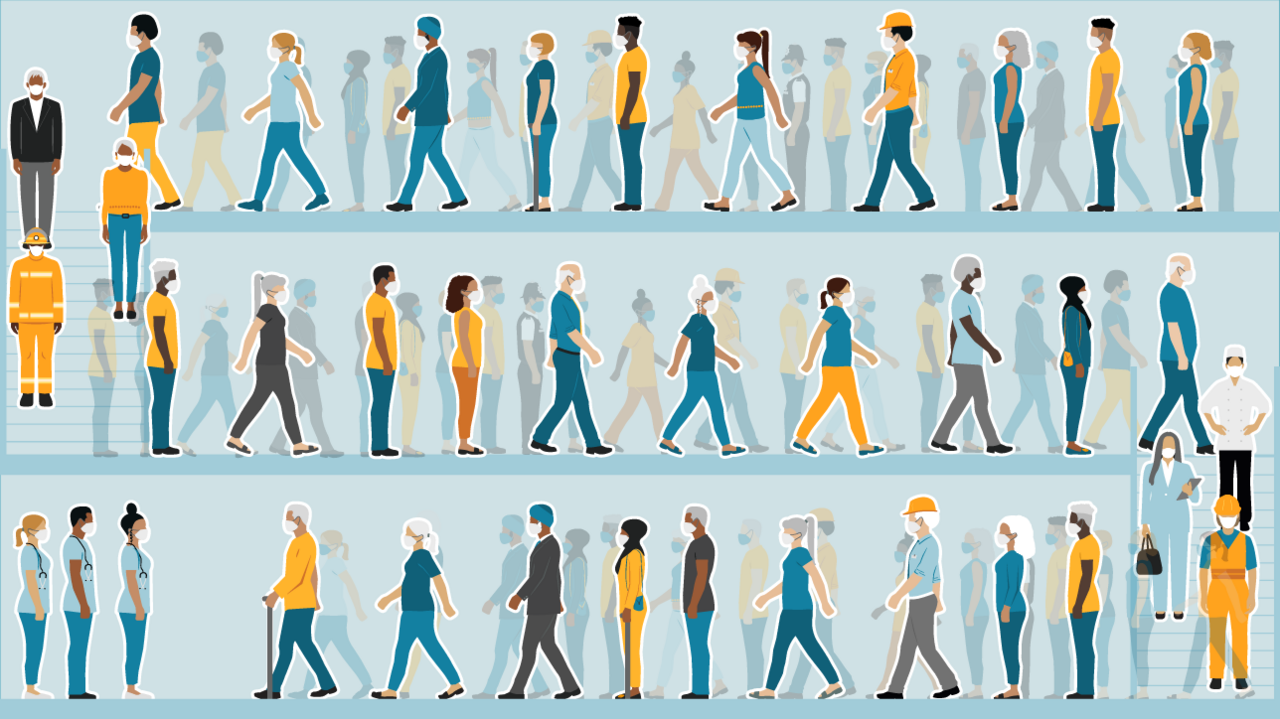
- Published11 February 2022
